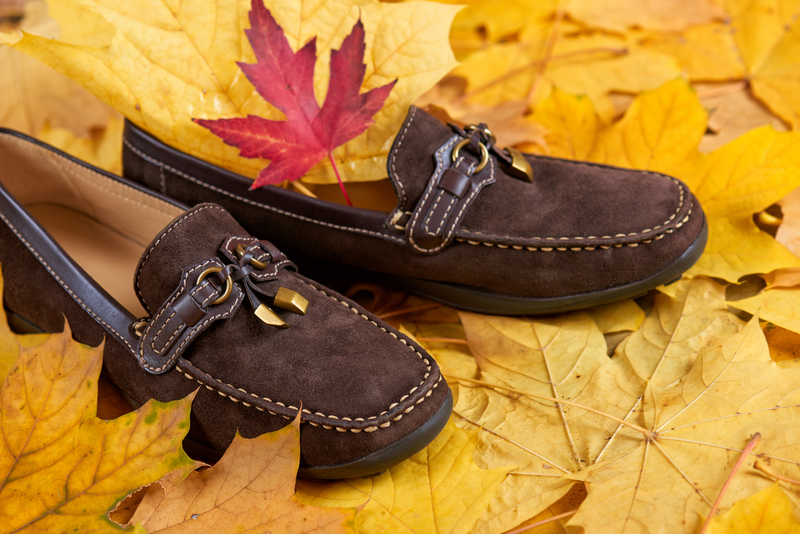Cherish Your Charms: Jewellery Cleaning Insight
Posted on 11/06/2025
Cherish Your Charms: Jewellery Cleaning Insight
Your jewelry is not merely an accessory - it's a reflection of your personality, a keepsake full of memories, and often, a prized family heirloom. To truly cherish your charms, it's essential to understand proper cleaning and maintenance practices tailored for every precious piece.
In this comprehensive guide, we delve into jewellery cleaning insight to help you keep your treasured pieces shining for generations. Whether you possess sparkling diamonds, lustrous pearls, or intricate costume jewelry, this article will reveal professional cleaning techniques, insider tips, and answers to your most pressing questions about jewelry care.
Why Jewellery Cleaning Matters
Regular cleaning is crucial to preserve the luster, value, and sentimental appeal of your jewels. Everyday wear exposes your favorite pieces to dirt, lotions, sweat, and environmental pollutants. Over time, these substances cloud gemstones, cause metals to lose their brightness, and can even damage delicate settings.
- Prolongs lifespan: Cleaning and proper storage prevent tarnish, rust, and permanent stains, extending the life of your jewelry.
- Maintains brilliance: Clean jewelry sparkles brighter, striking a dazzling effect that enhances your appearance.
- Prevents damage: Dirt and grime can loosen prongs or erode metal settings, leading to gemstone loss if neglected.
- Hygiene: Bacteria and allergens can accumulate on jewelry, causing skin irritation or infections.

Understanding Your Jewelry Types
Each piece in your jewelry collection may require unique cleaning methods. Whether you cherish fine jewelry, fashion accessories, or heirloom antiques, knowing the composition is the first step in effective care.
Fine Jewelry: Gold, Platinum, and Precious Stones
- Diamonds: Resistant to scratching but can lose sparkle if oils and grime build up.
- Gold and Platinum: These metals resist corrosion yet are soft enough to scratch or bend.
- Colored Gemstones: Sapphires, rubies, emeralds, and others often have specific sensitivities to chemicals and temperature.
Sterling Silver Pieces
Sterling silver is particularly susceptible to tarnishing. Proper handling and storage, along with regular polishing, are essential.
Pearls & Organic Gems
Materials like pearls, coral, and amber are porous and delicate. They require the gentlest approach when it comes to jewellery cleaning insights.
Fashion and Costume Jewelry
Often made with plated metals and glass stones, costume jewelry should never be soaked or exposed to harsh chemicals as this can cause fading and flaking.
The Do's and Don'ts of Jewellery Cleaning
Before you begin any cleaning regimen, familiarize yourself with these crucial guidelines to protect your cherished charms:
- Do use mild cleansers and soft, lint-free cloths.
- Do inspect pieces for loose settings or damage before cleaning.
- Do clean regularly - a little maintenance goes a long way!
- Don't use abrasive cleaners, alcohol, or bleach on delicate gems and metals.
- Don't soak porous stones like opals, pearls, or turquoise.
- Don't use ultrasonic cleaners on antique or fragile jewelry without professional advice.
Step-by-Step Guide: Cleaning Your Jewelry at Home
Home jewelry cleaning is simple with the right approach. Here's how to cherish your charms with gentle care:
1. Gather Your Supplies
- Soft, non-abrasive cloth
- Mild dish soap (no harsh chemicals or lemon additives)
- Small, soft-bristled toothbrush
- Lukewarm water bowl
- Mist spray bottle (optional for pearls)
2. Prepare a Cleaning Solution
Mix a few drops of mild dish soap with lukewarm water in a small bowl. Stir gently; avoid hot or boiling water, which can crack sensitive stones.
3. Soak Your Jewelry
Place durable jewelry pieces, such as gold and diamond rings, into the solution for 10-20 minutes. For more delicate items, skip soaking and use a damp cloth or spritz.
4. Gently Scrub
Using a soft-bristled toothbrush, lightly clean intricate settings, paying special attention to areas where dirt accumulates. Never use excessive force.
5. Rinse Thoroughly
Rinse each piece with fresh, lukewarm water to remove any soapy residue. Ensure your sink is plugged or use a strainer to prevent losing tiny stones or earring backs.
6. Dry and Polish
Pat dry with a soft, lint-free cloth. Avoid paper towels, which can scratch metals. Gently buff to restore shine.
Special Care Tips for Unique Jewellery
Pearls
- Wipe pearls with a damp, soft cloth after each wear to prevent build-up of oils and acids.
- Never soak pearl strands as water can weaken the silk thread.
- Allow pearls to dry flat before storing.
Silver Jewellery
Polishing cloths specifically manufactured for silver are your best option. Store silver pieces in anti-tarnish pouches or cloth to minimize air exposure.
Gemstones
- Some colored stones (e.g., emeralds) should only be cleaned with a damp cloth - avoid ultrasonic or steam cleaning.
- Research individual gemstones or consult a jeweler for safe cleaning protocols.
Costume Jewelry
- Wipe gently with a damp cloth.
- Avoid any immersion in water or cleaning solutions.
- Polish glass stones with a dry cloth for added sparkle.
Professional Jewellery Cleaning: When to See an Expert
Even with diligent home care, occasional professional cleaning is advisable, especially for valuable or intricate pieces. Visit your trusted jeweler for:
- Annual deep cleaning and inspection of prongs, clasps, and settings.
- Stone tightening or repairs to prevent accidental loss.
- Repolishing and buffing to restore original luster.
- Special treatments for antique, estate, or designer jewelry.
Storing Jewelry: Prevention Is Better than Cure
How you store your jewelry is a vital part of maintaining its beauty and longevity.
- Always store items separately to avoid scratching or entanglement.
- Use soft pouches, lined compartments, or jewelry boxes with individual slots.
- Silica gel packets or anti-tarnish strips help combat moisture in storage.
- Avoid storing pearls in plastic bags, which can emit damaging chemicals.
Answering Top Jewellery Cleaning Questions
Can I use baking soda and vinegar to clean jewelry?
While these household ingredients are popular for cleaning, they can be abrasive and may damage soft stones or plated surfaces. For safe cleaning, always stick to mild soap and water for most jewelry materials.
How often should I clean my jewelry?
Frequency depends on wear and lifestyle. Pieces worn daily (like wedding rings) should be gently cleaned weekly. More elaborate or rarely worn items may need attention just a few times a year.
Is it safe to use an ultrasonic cleaner at home?
Ultrasonic cleaners work wonders for sturdy diamond and gold jewelry, but they're not recommended for pearls, emeralds, opals, or antique pieces. When in doubt, consult your jeweler for guidance.
What's the best way to clean white gold jewelry?
White gold often has a rhodium plating, which can wear over time. Clean with mild soap, rinse thoroughly, and consider professional re-plating every few years to restore brilliant white shine.
Eco-friendly Jewellery Cleaning Solutions
Sustainable practices are increasingly important. Consider these environmentally conscious cleaning alternatives:
- Bicarbonate of soda paste: Gently rub with a soft cloth for silver jewelry; rinse and dry well.
- White vinegar: Mix a small amount with water for a mild, natural cleanse (avoid for porous stones).
- Plant-based soap: Substitute regular dish soap with eco-friendly, unscented alternatives.
Maintaining Sparkle: Lifestyle Tips
The best way to cherish your charms is to protect them from harmful exposure in the first place:
- Remove rings before strenuous activities, gardening, swimming, or using harsh chemicals.
- Apply perfumes, lotions, and hairsprays before putting on jewelry to minimize residue buildup.
- Wipe jewelry after each wear to remove sweat and oils.
When Not to DIY: Red Flags That Require Professional Help
Despite your best home care, certain situations dictate when only a professional should handle your jewelry:
- Visible cracks in gemstones
- Extremely loose or missing stones
- Severe tarnish, corrosion, or broken clasps
- Highly intricate antique pieces or those with unknown materials

The Emotional Value of Cherished Jewelry
Jewelry often represents life's most treasured milestones: an engagement, an anniversary, a cherished gift, or a family legacy passed down through generations. Each piece tells a story and deserves loving care that honors both its beauty and meaning.
Conclusion: Celebrate and Cherish Your Charms
Jewellery cleaning insight is about more than sparkle--it's about preserving memories and investing in the future elegance of your most prized possessions. With these expert tips and regular attention, you can ensure your beloved jewelry remains as radiant as the first moment it caught your eye.
Remember, the best way to cherish your charms is by cultivating a routine of gentle cleaning, safe storage, and the wisdom to seek help when needed. Invest in the care of your jewelry today to keep your signature style radiant and timeless for years to come.
Ready to cherish your charms? Start a cleaning routine today and watch your jewelry--and the memories it holds--shine bright for generations.




